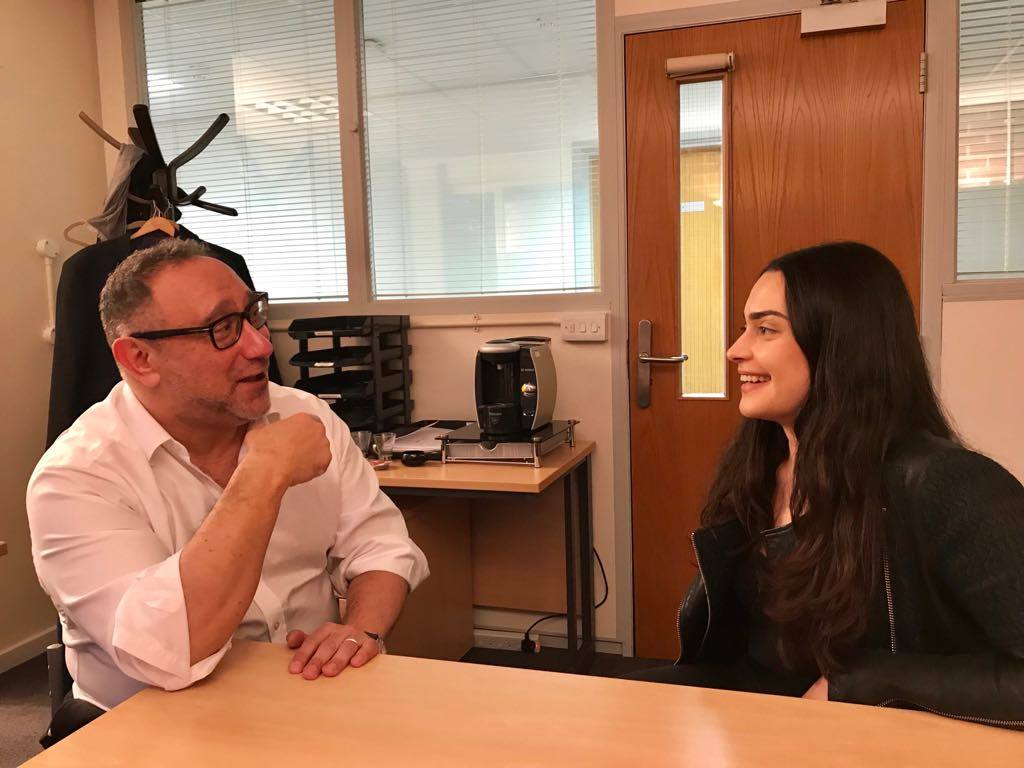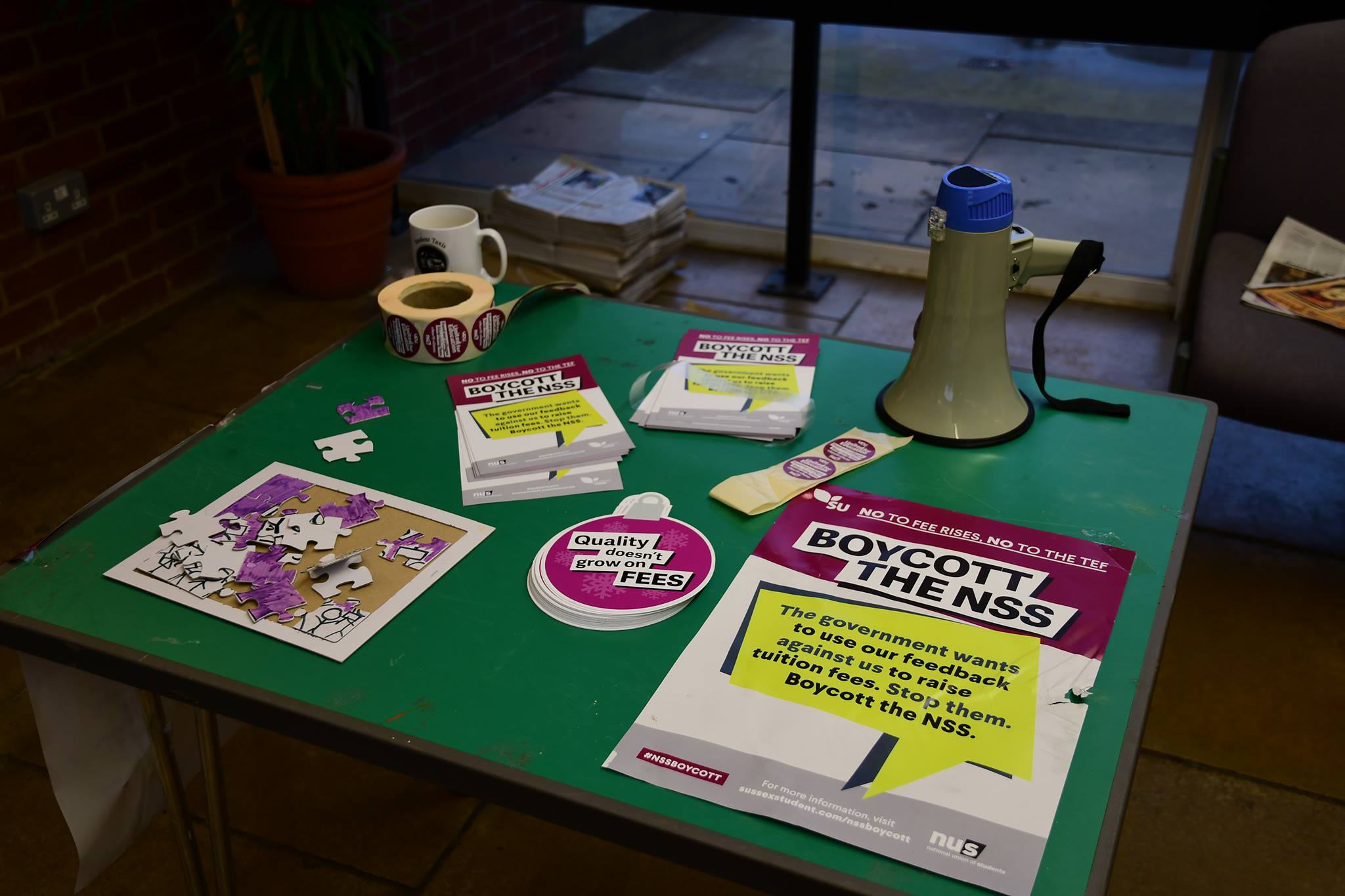Why Sussex?
I think Why Sussex for a number of reasons. Firstly, there was something about the university that really attracted me. I like the idea as well as the reality of working in a university which is a little bit more edgy, a bit more critical, a bit more challenging. Even though I’m a fairly accomplished academic I don’t actually fall into the general stereotype mould of what an academic is. So, for me, Sussex offers me the opportunity to do what I’ve done in Nottingham and Birmingham but to do it absolutely authentically and with great pride. And it wasn’t that I hid the way that I did work at Nottingham and Birmingham, but it was just a great opportunity to come to a university that really wants people who are willing to challenge orthodoxies, think about new ways of doing things, think about new ways of organising the university, how we work with our students and bringing together also not just my academic experience but models from my real world experiences.
And you feel like you couldn’t do that as much at the other universities?
Yeah, I don’t think I could really. No, I think that there are limits to how much radicalism and how much change and how ‘risk-takey’ you can be at other universities.
Sort of like how much you can push the boundaries?
Yeah, Sussex has always had a reputation for pushing the boundaries, it has always been seen as a university that is so-called ‘disruptive’, positively disruptive- it does disruptive interventions. It was the first University to really push forward on interdisciplinarity. So for example, you study Politics but actually, there’s a lot of interesting places and spaces between these different buildings. Generally, most universities will still teach degrees which are Politics, but actually, as a person who has really thrived from doing interdisciplinary research it is the spaces where you learn from other disciplines and come outside your comfort zone and learn new forms of knowledge and doing things that I have been absolutely fascinated with. Yesterday at the summit we had some elected SU officers and lots of academics, we had people from professional services, we had people from residential estates, everyone in the room, to talk through the issue. This is a totally different way of doing business and I’m lucky that I have the power and authority to be able to do that and it’s just a great opportunity for me to come to Sussex. And I also love Brighton, I so love Brighton.
Me too!
I mean where would you go that would be better? I’ve had a place in Brighton for 6 years, I just love it. For me, it’s about bringing together this passion for doing things a bit differently a bit more challengingly and then bringing that to a place where I think, is just the best place to live. It’s the only place in the UK that I’ve ever felt I can be who I want. There’s no constraints. You can wear a silly hat, you can have a parrot on your shoulder -which is what I’ve seen when I’ve been to my favourite cafe in the Pavilion Park- and it’s totally normal! And I just thought this is so effing wonderful! So, Sussex University, Brighton, I don’t think life gets better than that, to be honest.
In regards to students and decision making, where do you see students as part of the decision making process?
At the heart. In a strategic framework which is the thing that I’m the architect for at the moment. When we had the university leadership teams residential a few weeks ago, we had four of the six SAB’s come to that, I invited them to the conversation around students and education. So they were invited to talk at ULT and they led an hours session. So, I’m very clear that students should be at the heart of what we do they should be involved in major decision making, they should be involved in the conversations about the structure of the academic year. A couple of weeks ago there was an event in which students were in the room discussing things around the student experience with the staff. I think there were about 50 students in the room, we also had students involved in interviewing for a senior academic post some weeks ago.
Why have you taken on the role at Sussex?
I am regarded as an expert on young carers, I started that 25 years ago (oh God…) and I’ve done a lot of work on that, I suppose that’s my claim to fame. I’m still an active researcher. And that’s been really interesting because it’s not just a research programme for me, I was a young carer as a child, I looked after my grandmother who had Parkinson’s disease. A lot of my teenage years are very heavily informed by those responsibilities because I was brought up really in a one parent family. Looking after my grandmother with my mother was really important and that’s influenced everything I’ve done – I went on after my degree to qualify as a social worker, I’m still registered as a social worker. I’m quite proud of that. The things I learned through my personal experiences of caring as a child and as an adult and my social work practice have very much informed how I do my work as an academic and as a leader. Everything I’ve learned is applicable to a style of leadership, and a style of management, and it is quite different, not necessarily here but at other universities, is much more a caring kind of leadership. So I’m genuinely concerned that my colleagues, my students should be enabled to be the best that they can. Make sure students can go on to have the kinds of lives, work, social lives etc that they want – that they should be enabled to lead authentic lives. You should be whoever you want to be, and so should I and so should you. It doesn’t matter who we are or what baggage we’ve brought, it’s about our opportunities and our futures. The role of a university is to help you get to that place. So if you want to become a plumber, or an astronaut or whatever it is we should put you on the right trajectory for that. So for me, it is about authenticity, kindness, caring, being determined, but also management skills. To get 80 people yesterday who started off in totally different places to agree on a new model, which they’ve not been able to for a couple of years. That’s what I bring to it, and the skills I’ve learned as a practitioner. I set up at Birmingham and Nottingham branches of Citizens UK, home of community organising in Britain and responsible for the ’real living wage’. The models we use in community organising, yesterday’s example was a classic example of. So I’m bringing models from outside academia which are quite refreshing and quite productive.
You said you want to help students be well-rounded people as well as just students getting a degree. Recently there have been shortages of mental health services – what would you do to make sure students can access these services?
I’m a big advocate of mental health services, I was a special professor of mental health at Nottingham. As a professor of social work, I know about costs of mental health. At Birmingham I established a commission to look at mental health so that’s a key issue. If we do not have adequate services we need to get that right if we don’t have enough people in our services to support the volume of students we need to get that right. I could give you a typical management response, which is that we’re competing for so many resources amongst other limited things – but there are some things which are really important and I put student mental health right at the top of my priorities because I know from personal experiences the critical importance of having good counseling and mental health support.
But it’s also one of the things that, because there’s such a government push now for mental health, there’s less support for physical health believe it or not. Mental health has always been the Cinderella service – the small bit commanding very much less resources, but at the same time, I think we need to be helping students think about healthy lifestyles, healthy food, sustainable food etc. Mental health is at the top because it’s a hidden illness, but we also need to think about students’ physical wellbeing – sport and exercise and leisure: how do we get you into a pattern where you have a healthy work-life balance, so you enjoy and love work but also enjoy and love other things. I’m not a great example because I’m a workaholic, but I do really wish someone would have told me that when I was a student that it’s really important not to just work all the time.
We are reviewing our mental health services, and we’re moving towards implementation.
What do you think about Sussex compared to Birmingham?
Sussex is a very different type of university. It’s much more informal which I love. I’m not a very formal person as you might have gathered, so I like the informality of Sussex. I like that I can walk around and not wear ties and stuff. I used to feel a need to wear ties a lot at Birmingham, and this is irrelevant in a way but its symbolic and really important. At Birmingham there were a lot of men in suits, I am a man in a suit but I’m a bit more relaxed. There’s a difference in formality and informality. There’s a difference in just the buzz and the tone – there’s a different tone to Sussex. A tone of a university much more at ease with itself – and it’s an amazing environment, stuck between the sea and the downs – come on. I just so love Brighton and I really love being here. But it’s also a University of contradictions: it’s got this wonderful buzz, there’s a kind of magic to Sussex which I don’t understand yet, but there are also big jobs to be done. We shouldn’t just think everything’s green, there is a lot of that but there are some serious things which need to be done.
I hope to be a Deputy Vice-Chancellor to say what he believes and believe what he says; that can carry people with me because I’m tapping into the tone. So I hope I can make a difference and move things along and unblock some of the things we’ve got stuck in which have thwarted students aspirations to be included, to have a voice, to have their say, be listened to, to do something about academics who want to make a difference and do research to change people’s lives. To have an infrastructure which is celebratory.
So you think we’re good, we just need a bit of a tweaking?
I think we’re really good but we do need some real tweaks.
So how have you found your first term here? Was it what you expected? More?
It’s more than I expected I have relished being here I’ve loved it. I’ll be honest, I’m knackered. I’ve no doubt you will cite that and Alex will probably tell me off later as I’m not supposed to say knackered! I am a bit knackered because I have been trying to immerse myself in the university. Three months, so many hundreds of meetings. I’ve been trying to get myself around the university to see how it works, to understand all the different schools, to understand the students’ union you know some of the student issues. Going to lots of meetings to listen to people. So I have absolutely loved it I think I’ve thrived on it and I think I’ve also started to make a difference in how we do things.
You might have seen this in The Badger. There have been some recent developments at Sussex in regards to external employers i.e. SEF. Workers are paid below the living wage [sic] of £8.75 and have complained about bad working conditions. As a social worker, what do you think the university could do about this?
Yeah, it’s a difficult one this one. So it’s not really as a social worker actually but just as a human being. I’ll be really open about this and you know, I’ll take the consequences. I’m very much affiliated with Citizens UK. Citizens UK is the home of the living wage, the living wage foundation is part of Citizens UK and so as a community organiser that works you know in that way I’m a believer in the living wage, the real living wage. There is a difference. I am a believer in the real [emphasis] living wage. We have a problem at Sussex and that is SEF is…
…External?
Yes. So I am an advocate for the real living wage. I have campaigned and stood on platforms. I have challenged ministers. I’ve held assemblies with a thousand people in the room about the real living wage. But as deputy vice-chancellor, we don’t necessarily have control over that. In an ideal world, I would pay people the real living wage.
In situations like this, because we’ve obviously been writing stories about this and we’ve had workers come to the office and we’ve spoken to them and it’s actually really quite sad.. and then you think what can be done? Can anything be done? Because we know that these companies they’re not employed by… they’re not affiliated with the university. Is there anything that can be done?
What’s to be done? I suppose if as a university we believed this to be important, and some of us do. The university is not in a great financial position as you well know but that doesn’t mean we shouldn’t do the right thing, it just means we’ve got so many things to do and we don’t have direct control over the salaries of those people because they don’t work for us. If we could ever get to a position where this university was saying you know ‘we are, we do believe in the importance of paying people a wage in which you know cleaners do not have to have three or four jobs to just about get through so that their children can actually have pocket money or whatever then I’m actually up for saying that. This is important with my values so if we can ever get to a position where the university would want to be promoters of that I would not be unhappy. Whether we can is another issue and it’s too early for me to say really. Personally, I’m a believer in the real living wage and I have campaigned for it. But I’ve never been successful at the two universities I’ve campaigned at. It has never been possible. But I’m in a different position now.
Some students have been wondering, what is your opinion on WD40 and d locks?
*Laughs hysterically* Have they told you about that then?!
…Yes, I heard!
So. I have to tell you that the male members of the university executive group are absolutely shite at dealing with student problems with bikes. SO one night we were coming back from, I think it might have been Council or something, and there was this poor student who… I don’t know how you hear those kinds of things!
Oh, it gets around!
Has Frida told you about that? So I’m walking back from Council, it must be about 8 or 9 o’clock at night and there’s a student trying to unlock a d-lock off her bike and she can’t do it. So Tim -who’s the operating officer- and I try and have a go and then Frida (SU President) walks along yeah and 3 blokes in suits can’t do this bike. So Frida says “ooh I’ll go and get some WD40” so she goes off. So I’ve offered the student a lift home, I’ve offered Frida a lift home and then there’s a whole conversation about this so then they go off and get WD40 and they come back *inaudible laughing*. So you know what I’ve got WD40 in my car now so I’ve so learnt from that episode. I’ve actually bought some WD40!
What have you learnt in your first three months at Sussex?
Buy WD40! I have a can of WD40 in my car in case I’m ever humiliated. We were trying to be good citizens and we totally failed. But Frida was on the money there. She sorted it all out. She was good. *Laughs*
Have you seen the memes of Adam?
Yeah, they’re great. I just love em’. I’m so envious. I feel as if you’ve ignored me. Can you pass that on to the meme people? They make me laugh!
How do you know about them?
To be honest, Adam shows me them. He loves them. He loves them. Are they meant to be hated or loved?
No, they’re meant to be loved!
I think they’d be great as marketing techniques. Just put them up on your official website. Students would love it!





